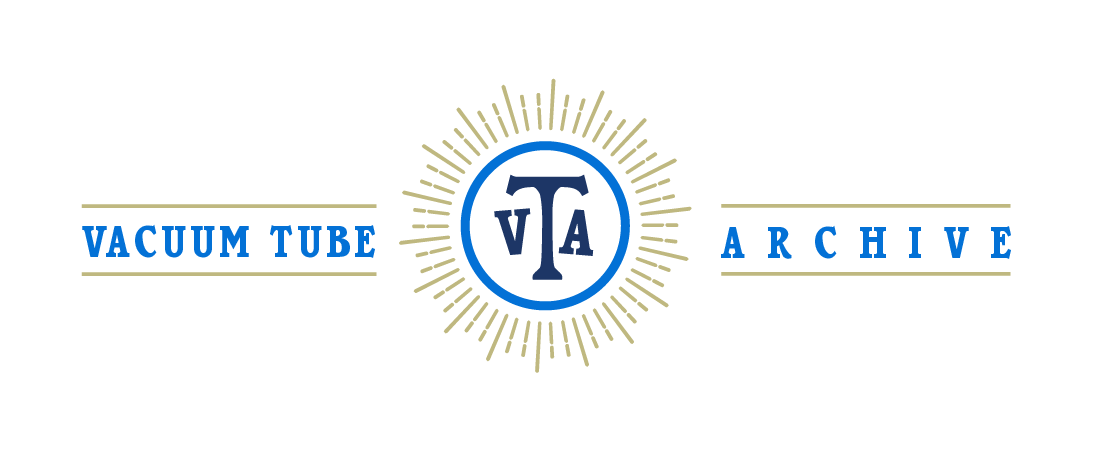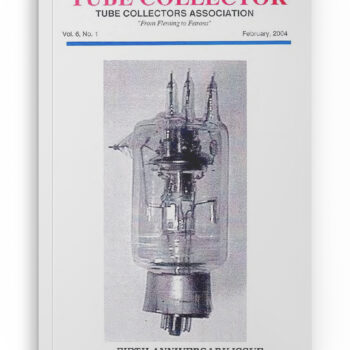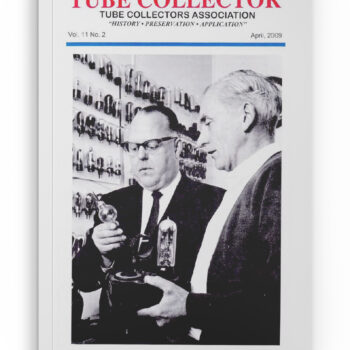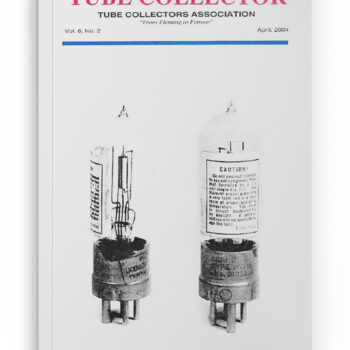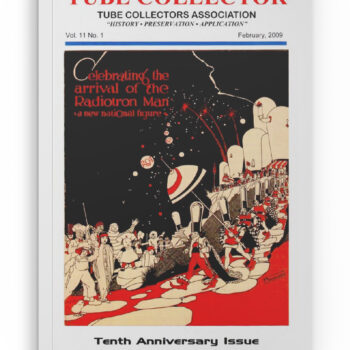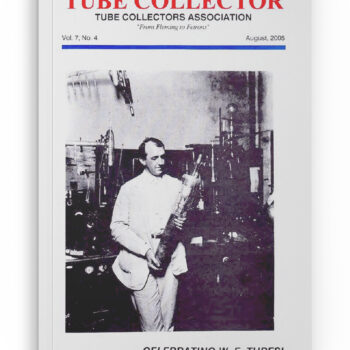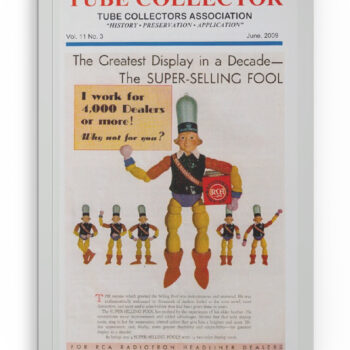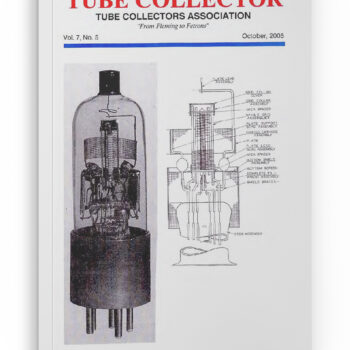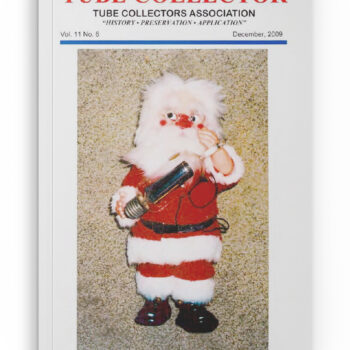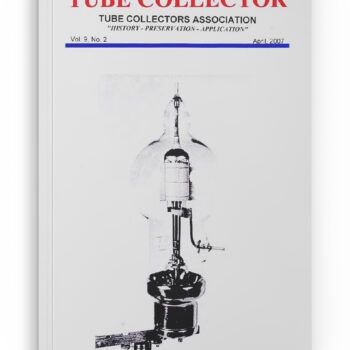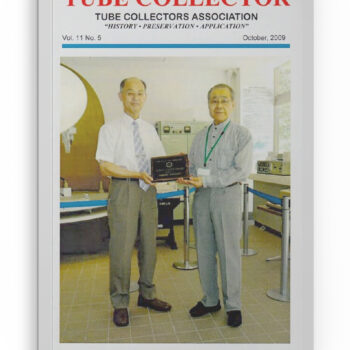On the Cover An RCA Labs Doojigger, or maybe a yhingamabob. See article on p.2. In this issue
Category: Magazines
Vol. 11, No. 2
Tube-and-bulb collector Floyd Lyons pays a visit to John Stokes, his New Zeland counterpart, in 1967. Lyons is admiring a Sperical Audio, while Stokes is holding a Loewe OB333 home receiver with its triple-triode tube. Photo: Auckland Start In this issue
Vol. 6, No. 2
On the Cover An early, labeled version of the Westinghouse WD-11. See Bill Condon’s article on p.2. In this issue
Vol. 11, No. 1
Illustration from an RCA dealer-promotio brochure of ca. 1926, “rolling out” a new symbol for RCA tubes, the “Radioman.” He was expected to join the, er, pantheon of logotypes for U.S. consumer goods: the “ArgoStarch” Indian-maiden figure, the “Dutch Boy Paints” youth, the “Gold Dust Twins”, the “Cambell,s Soup: cook, etc. The goofy Radiotron Man...
Vol. 7, No. 4
On the Cover The beginning of a product line: William Housekeeper of the Western Electric Co. enginneering staff holding a 100-kW developmental tube made with the knife-edge copper-to-glass seal that he had patanted in 1919. In this issue
Vol. 11, No. 3
The RCA “Selling Fool” doll, a retailer display aid designed ca. 1926 by the major cover/commercial artist Maxfield Parrish. The “Fool” replaced the “Radiotron Man” figure as seen on the Feb. cover, although Web postings about the doll often use the “Radiotron” name. RCA’s $5 price for a quqetet of dolls is ironic – this...
Vol. 7, No. 5
On the Cover The RCA VHF receiving tetrode of 1935. See editorial page for details. Photo: Boyer Estate, courtesy of Robert Lozier. Drawing: RCA Standardizing Notice 3-1-839, in Dowd-RCA Archive, a holding of the AWA Museum.
Vol. 11, No. 6
Some thermionic jollity for the season, courtesy of Bengt Svensson In this issue
Vol. 9, No. 2
On the Cover The Eimac X-1, a developmental triode from May, 1942, using the bulb and base of a 250T, with new anode and heavier filament taking 25 anps instead of 10.5. In this issue
Vol. 11, No. 5
Hisashi Ohtsuka (right), enjoying his 2009 Schrader Award plaque with Dr Yukawa, museum director of the University of Electro_Communicationon Tokyo. Photos: Hisashi Ohtsuka In this issue
